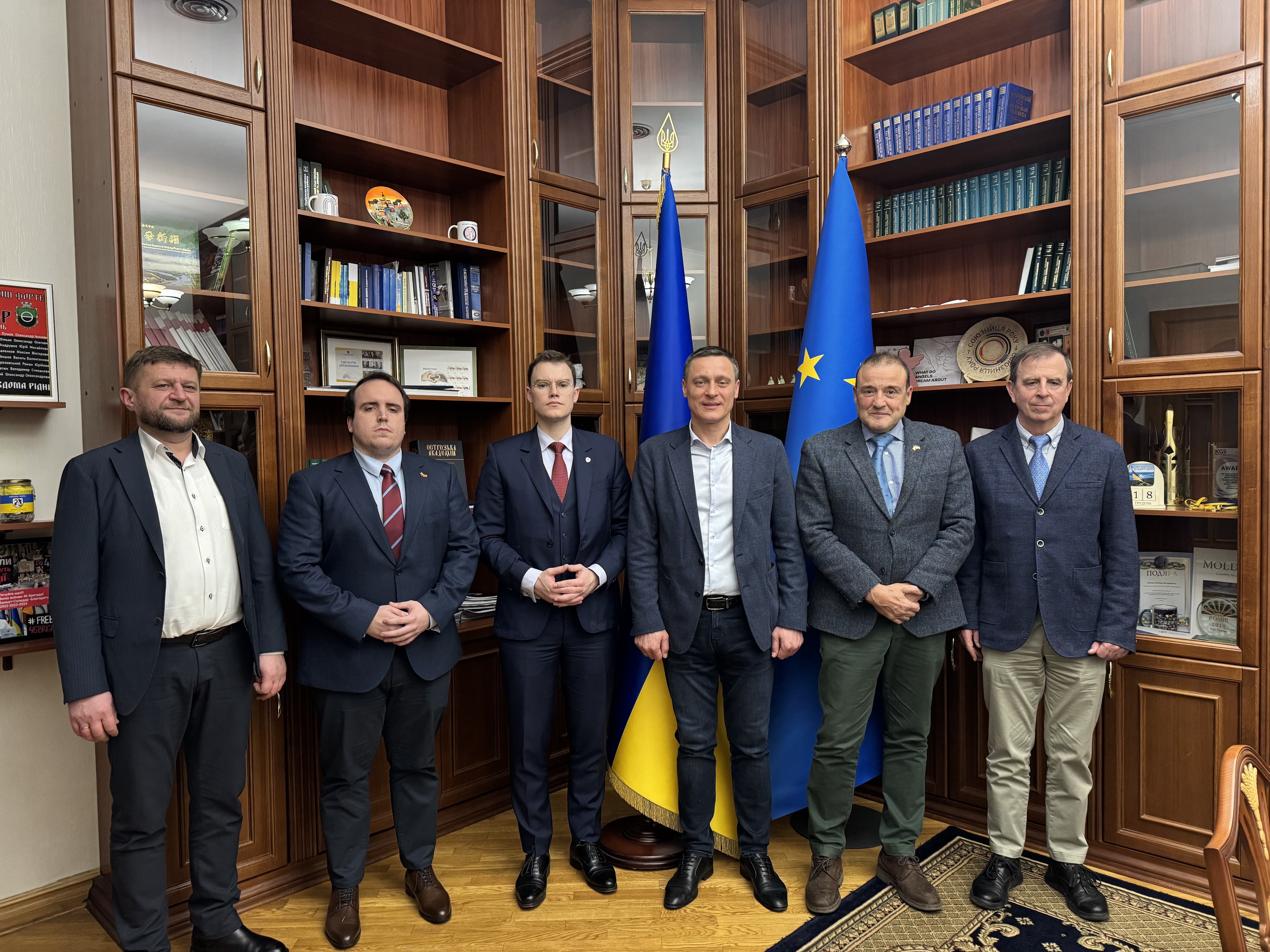On February 6th, Yuriy Kovbasa, the Representative of the Commissioner in the System of Bodies in Security and Defense Sector of Ukraine, held a meeting with a delegation of high-ranking professionals from Spain’s defense and strategic community. The delegation engaged in discussions about the dire human rights situation in Ukraine, exacerbated by Russia’s war of aggression.

The Spanish representatives included Victor Mario Bados Nieto, Director of the Spanish Institute for Strategic Studies (IEEE); Ignacio Fuente Cobo, Senior Analyst at IEEE; Manuel José Gazapo Lapayese, Director of Institutional Relations at UNIVERSAE and Director of the International Security Observatory; and Amín Lejarza de Bilbao Essalhi, Head of the Youth Section of Eurodefense Spain.
This visit was organized with the support of the European Union and the International Renaissance Foundation as part of the joint initiative European Renaissance of Ukraine.
At the heart of the discussions was Spain’s growing concern over Russia’s systematic violations of international humanitarian law. The Spanish delegation expressed particular interest in Russia’s ongoing crimes against Ukrainian prisoners of war, the violations of international conventions governing armed conflict, and the urgent need for increased international efforts to secure justice and accountability. Yuriy Kovbasa provided the delegation with grim statistics, revealing that as of December 2024, Ukrainian law enforcement agencies had opened 57 criminal cases regarding the murder of more than 180 Ukrainian prisoners of war by Russian forces. These cases, he emphasized, represent just a fraction of the widespread abuses being carried out as part of Russia’s war of aggression against Ukraine.
The meeting also addressed the latest international reports documenting Russia’s war crimes. Yuriy Kovbasa highlighted a March 2024 report presented at the 55th session of the UN Human Rights Council by the UN Independent International Commission of Inquiry on Violations in Ukraine. The findings contained new evidence confirming the systematic use of torture by Russian authorities in both occupied Ukrainian territories and within Russia itself. Beyond the treatment of prisoners of war, Yuriy Kovbasa also brought attention to Russia’s abduction and illegal detention of Ukrainian civilians. In 2024 alone, Ukraine’s National Police launched investigations into the forced disappearance of 1,769 civilians and the unlawful imprisonment of 204 individuals by Russian forces.


In response to these grave concerns, Yuriy Kovbasa called upon Spain and the international community to take stronger action in securing the release of abducted and illegally imprisoned Ukrainian civilians. He stressed the importance of diplomatic pressure on Russia, urging Spain to leverage its influence within the European Union and international human rights bodies to demand accountability.
The Spanish delegation reaffirmed its commitment to Ukraine’s sovereignty, independence, and pursuit of justice. Victor Mario Bados Nieto assured that Spain, along with its European and international partners, would continue to stand with Ukraine in its struggle for freedom and the return of its illegally detained citizens.